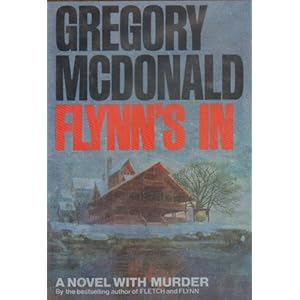
I wish I could tell my readers a bit about this book without spoiling it for you all. Unfortunately, I can't, so I'm breaking the spoiler-free part of the goal in the introduction this time. Sorry about that.
I found a well-loved paperback copy at McKay in Chattanooga for a quarter. You remember those breathless 1970s Bantam paperbacks, all white, with the text on the back cover separated by the horizontal lines, and the front cover that seems like a random assemblage of found objects? I just love the design of those things. (The image above is a later reprint.) I recognized the author, George Markstein, as one of the writers and producers of the classic TV series The Prisoner and figured, rightly, he was worth the gamble of a quarter.
You remember The Village from The Prisoner, right? Well, this book asks whether that facility might have been inspired by something that the British had to consider during World War Two. What if you've got an officer or two, or more, with a head full of classified intelligence, do something stupid and prove themselves unreliable? You can't really discharge them, and you can't send them to a civilian prison, and you can't risk them turning if they're that dangerous.
The book's structure is almost as compelling as the premise. I completely missed the pretty obvious clue of the book's title - well, it's a World War Two novel; operations would often have names that don't correspond to reality, or to expected slang - and started following a Captain Loach, who is frustrated because his mission to France has just been scrubbed after a perceived intel failure. The book goes on for quite some time setting up Loach as a hero, and introducing supporting players including one whom, we assume, will be serving as the story's romantic lead once he gets to France, and a plausible villain. Then, long after I had become comfortable with the pace of a conventional pulp spy thriller, Loach does something completely unexpected. He ends up in jail after he takes a riding crop and beats the unholy hell out of an escort that his superiors had sent him.
I was left quite baffled by this turn of events. I know that it's kind of expected in these clunky 1970s he-man thrillers to read some dated misogyny, but the brutality of this guy really disqualified him as being a hero. What a neat turn of events to learn that he is not one at all. Suddenly, the hero becomes an unsympathetic supporting player in somebody else's story. That's when it turns from conventional into something quite interesting. Recommended, and for more than a quarter, too.




